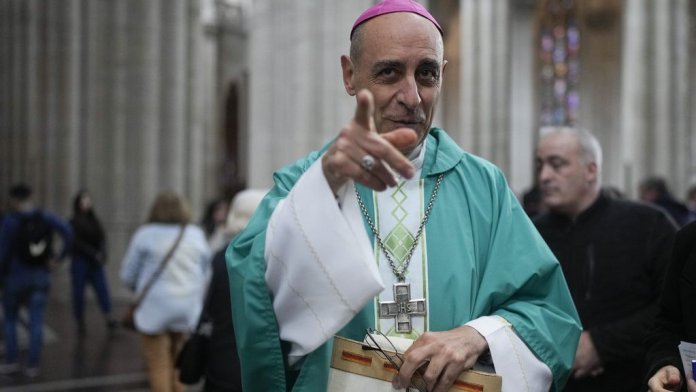December 18, 2023, will go down in history as the date on which the die was cast: the date on which the church renounced the gospel’s right to call us to repentance; the date that, more than any other, signals the church’s implosion in the West.
Of course, long before this fateful date on which Pope Francis signaled his approval of the “blessing of same-sex couples,” indications abounded that not all was well in the state of Denmark. The pope’s mercurial behavior, including his tendency to sow confusion with off-the-cuff one-liners on controversial topics, had long been an area of concern to faithful churchgoers.
Added to this were recent developments, such as the pope’s odd fixation upon stamping out Tridentine Latin Masses, which draw thousands upon thousands of faithful young Catholics to church every Sunday; counterintuitive appointments, such as that of Victor Manuel Cardinal Fernández as prefect of the Dicastery for the Doctrine of the Faith; vindictive censures of conservative Catholics such as Bishop Joseph Strickland and Raymond Cardinal Burke; as well as the deployment of the Synod on Synodality in directing the church to take her cue from groups such as “remarried divorcees, people in polygamous marriages, LGBTQ+ people, etc.”
Though each of these issues is troubling, the history books will give them mostly just a passing glance. By sharp contrast, Fiducia Supplicans, issued on December 18 and approved by Pope Francis, is absolutely earth-shattering. It is hard to imagine anyone doing more damage more effectively to the Catholic Church and to Christianity as a whole than Pope Francis has done with this declaration. Unless radically critiqued and reversed, its guidelines will signal the demise of Western Christianity.
Only the True Can Be Pastoral
The reason for this dire outlook is close at hand: it is the refusal to heed Joseph Ratzinger’s simple, golden rule about pastoral guidance, namely, that it must be theologically faithful and true. Here is what the then-prefect for the Congregation for the Doctrine of the Faith wrote in a 1986 episcopal letter about “pastoral care of homosexual persons”:
We wish to make it clear that departure from the Church’s teaching, or silence about it, in an effort to provide pastoral care is neither caring nor pastoral. Only what is true can ultimately be pastoral. The neglect of the Church’s position prevents homosexual men and women from receiving the care they need and deserve.
For Joseph Cardinal Ratzinger, the theological and the pastoral always go together: “Only what is true can ultimately be pastoral.” Fiducia Supplicans, while claiming to be a declaration “on the pastoral meaning of blessings,” is anything but pastoral for the simple reason that it radically undermines the faith which was once delivered unto the saints, rather than contending for it, as Jude exhorts us to do (Jude 3). Only by being true to the Scriptures as faithfully interpreted and lived through the centuries can we find our pastoral footing on the sexual issues of the day.
Threatening Ambiguity
Of course, every attempt will be made to explain that Fiducia Supplicans merely offers a blessing to people in need of God’s love and mercy. We will be assured that blessings of same-sex couples will not take place within a liturgical setting. And we will be reminded that these blessings in no way offer “moral legitimacy to a union that presumes to be a marriage or to an extra-marital sexual practice.” In short, if only you read carefully, you’ll recognize that in Fiducia Supplicans, the church’s actual teaching on marriage has once again been affirmed.
At the very least, people may bring out these arguments to make the point that things are not as bad as they could possibly be—that Fiducia Supplicans contains statements that limit the damage. Such a reading is grounded, I think, in a naïve view of how this declaration will function in practice and, presumably, of how it is intended to function. Think of it: had the pope simply said that the traditional teaching on marriage is outdated, that gay sex is okay, and that from now on we will bless same-sex unions, every single faithful Catholic would have recognized the heretical teaching and would have condemned Fiducia Supplicans tout court.
As it is, the declaration instead sows confusion by asking that we bless same-sex couples while at the same time maintaining that we’re not “officially validating” such unions or changing the church’s teaching on marriage. One may find such a balancing act an insult to people’s intelligence—which indeed it is—but it allows people to say that Fiducia Supplicans is not as bad as it could have been and that we can (and perhaps should) interpret it in line with the tradition of the church. The truth is: everyone knows that as a result of this new development, within Catholicism—and beyond it—gay sex is now okay, homosexual unions will be blessed, and heresy rather than orthodoxy in matters of sexual morality will be the default position.
Read it all at Touchstone



